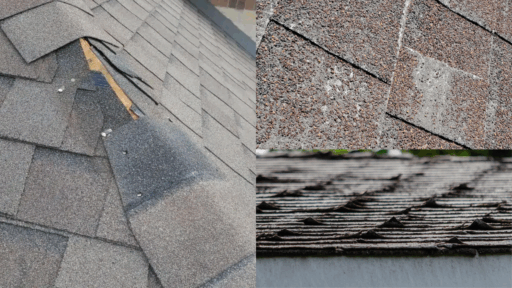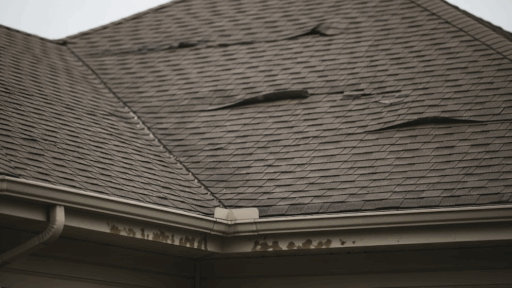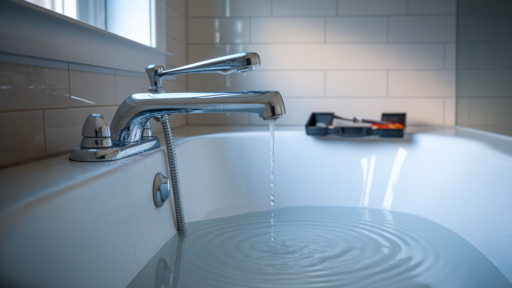Summer in Pennsylvania hits different. One day, you’re dealing with 90°F heat and humidity that feels like a wet blanket, the next, you’re wondering if you even need AC. This rollercoaster weather? It’s exactly why your cooling system needs special attention here in the Keystone State.
I’ve been working on HVAC systems across Pennsylvania for over two decades now. From cramped Philadelphia row homes to sprawling suburban houses in the suburbs, I’ve seen it all.
Here’s the thing — Pennsylvania’s unique climate creates specific challenges that generic cooling advice just doesn’t address. When your air conditioning repair bills start piling up every summer, there’s usually a reason tied directly to how our local weather beats up these systems.
Let me walk you through the real-world problems I encounter daily and the solutions that actually work in our climate.
Common AC Problems That Hit Pennsylvania Homes Hard
Pennsylvania summers aren’t just hot — they’re sticky. That humidity does more than make you uncomfortable. It forces your AC to work overtime, and here’s what I see happening:
Evaporator coils freeze up more frequently here than in drier climates. Why? Your system struggles to remove all that moisture from the air. The coil gets overwhelmed, ice forms, and suddenly you’re calling for emergency service on the hottest day of the year.
Drainage issues plague Pennsylvania homes. All that extracted humidity has to go somewhere. I’ve pulled gallons of backed-up water from drain pans because algae and mold thrive in our muggy conditions.
Temperature Swings Wreak Havoc
Spring hits, and homeowners get excited. They fire up their AC after months of winter storage. But Pennsylvania’s famous temperature swings — 70°F one day, 45°F the next — create thermal stress on components.
Refrigerant lines expand and contract repeatedly. Seals that were fine all winter suddenly develop tiny leaks. Your system loses efficiency gradually, then dramatically once summer heat arrives.
Post-Winter Wake-Up Problems
Every March and April, my phone rings constantly. “The AC won’t start,” they say. Winter in Pennsylvania isn’t just cold — it’s long. Systems sit dormant for 5-6 months, and that creates specific issues:
- Capacitors fail after extended downtime
- Outdoor units accumulate debris, leaves, even small animal nests
- Electrical connections corrode from our wet spring weather
Essential Maintenance Tips That Actually Work
Forget the “change every three months” advice you read online. Pennsylvania’s humidity and pollen levels demand a different approach.
I tell my customers: check monthly, change when dirty. Spring pollen season? You might change AC filters every 3-4 weeks. Summer humidity spikes? Same deal. Your system works harder here, so it needs cleaner air.
Use pleated filters rated MERV 8-11. Skip the cheap fiberglass ones — they’re useless against Pennsylvania’s airborne challenges. But don’t go crazy with MERV 13+ unless your system’s designed for it. I’ve seen too many units strain against overly restrictive filters.
Thermostat Settings That Make Sense
Here’s something most people get wrong: optimal thermostat settings in Pennsylvania aren’t the same as Arizona or Florida.
Set your cooling to 76-78°F during peak humidity. Sounds warm? Trust me. Your system needs to run long enough to pull moisture from the air. Short cycling at 72°F means you’ll feel clammy even when the temperature’s “right.”
Program gradual temperature changes. Pennsylvania mornings can be cool, afternoons blazing. Set your thermostat to adjust slowly — 2-3 degrees at a time over several hours.
Coil Maintenance for Humid Conditions
Indoor and outdoor coils take a beating in our climate. Outdoor coils collect everything from cottonwood seeds to road salt residue. Indoor coils grow mold faster than you’d believe.
Clean outdoor coils monthly during peak season. Use a garden hose with gentle pressure, spraying from inside out. Never use a pressure washer — you’ll damage the delicate fins.
For indoor coils, schedule professional cleaning annually. I know it costs money upfront, but I’ve seen systems last 5+ years longer with proper coil maintenance.
DIY Troubleshooting That Won’t Land You in Trouble
Airflow Checks Anyone Can Do
Poor airflow kills AC efficiency faster than anything else. Here’s how to diagnose problems without calling a tech:
Hold tissue paper near each vent. It should flutter vigorously. Weak movement? Check these things first:
- All vents fully open?
- Filter clean?
- Return air grilles unblocked?
Walk around your outdoor unit. Clear at least 2 feet of space on all sides. I find grills, lawn furniture, even overgrown bushes choking units every single day.
Decoding Strange Sounds
AC units make noise — that’s normal. But certain sounds in Pennsylvania systems mean specific problems:
Squealing during startup usually means belt issues or motor bearings affected by humidity. Clicking that won’t stop? Probably electrical relays struggling with corrosion.
Grinding metal-on-metal sounds? Stop the system immediately. Call someone. I’ve seen homeowners cause $2,000 in damage trying to “fix” bearing problems themselves.
Refrigerant Reality Check
You might be wondering if you can check refrigerant levels yourself. Technically? Yes. Safely and legally? That’s different.
Look for ice on refrigerant lines during operation. Ice means low refrigerant or airflow problems. Either way, it needs professional attention.
Oil stains around fittings suggest refrigerant leaks. Pennsylvania’s temperature cycles accelerate these leaks compared to stable climates.
Bottom line: refrigerant issues require EPA-certified technicians. Don’t risk injury or legal problems trying DIY solutions.
Repair Costs and What to Expect in Pennsylvania
Let’s talk money. AC repair costs in Pennsylvania vary wildly depending on your location, system age, and exactly what broke. But after fixing thousands of units across the state, I can give you realistic numbers.
Typical Pennsylvania Repair Costs
Minor fixes run $150-400. Think thermostat replacements, capacitor swaps, or basic electrical issues. These problems happen frequently here because our humidity corrodes connections faster than desert climates.
Mid-range repairs cost $400-800. Refrigerant leaks, blower motor replacements, or evaporator coil cleaning fall into this category. Pennsylvania’s freeze-thaw cycles contribute to these failures more than you’d expect.
Major repairs? $800-2,500. Compressor replacement, extensive electrical work, or ductwork modifications. When Pennsylvania homes settle over time, ductwork shifts and develops leaks that require significant repair work.
Factors That Drive Costs Higher in PA
Age matters more here than other places. Systems over 10 years old struggle with our climate extremes. Parts become harder to find, labor becomes more intensive.
Accessibility kills budgets. Philadelphia row homes, older suburban houses with cramped mechanical rooms — I’ve spent extra hours just reaching broken components. That time gets billed to you.
Emergency calls during heat waves cost 1.5-2x normal rates. Plan ahead when possible. July emergency service can easily hit $300+ before we even diagnose the problem.
Repair vs. Replacement Reality
Here’s my honest take: if repair costs exceed 50% of replacement value on a system over 12 years old, replacement makes financial sense in Pennsylvania.
Why? Our climate shortens equipment lifespan compared to moderate regions. A 15-year-old system here performed like a 20-year-old system in milder climates. Factor in efficiency improvements, and new equipment often pays for itself within 5-7 years.
When to Call Pennsylvania HVAC Professionals
Some problems require professional intervention immediately. No exceptions.
Electrical burning smells mean fire risk. Shut off power at the breaker, call emergency service. I’ve seen house fires start with “minor” electrical issues homeowners ignored.
Refrigerant leaks require certified technicians by law. Plus, refrigerant exposure causes serious health problems. Save yourself the liability and medical bills.
Complete system failure during extreme weather demands professional diagnosis. Pennsylvania heat waves kill people. Don’t gamble with jury-rigged solutions when lives matter.
Choosing the Right Contractor in PA
Pennsylvania has excellent HVAC contractors — and plenty of questionable ones. Here’s how to tell the difference:
Verify licensing through Pennsylvania’s contractor database. Legitimate contractors carry state licenses and liability insurance minimums of $1 million. Ask for proof before any work begins.
Look for NATE certification and EPA credentials. These indicate investment in professional development beyond basic requirements. Pennsylvania’s unique climate challenges require specialized knowledge.
Get written estimates from multiple contractors. Honest professionals explain technical issues clearly, provide detailed written recommendations, and never pressure immediate decisions.
Check recent references from customers with similar equipment in your area. Installation quality varies significantly between contractors, and Pennsylvania’s climate exposes poor workmanship quickly.
What Professional Service Should Include
Proper assessments take time. Maintenance visits require 60-90 minutes. Replacement consultations need 2-3 hours for accurate load calculations considering your home’s square footage, insulation values, and regional climate factors.
Expect Manual J load calculations for replacement systems. This prevents costly over- or undersizing equipment — a common problem I fix frequently.
Quality professionals use diagnostic tools like infrared cameras and refrigerant manifolds. They document findings in written reports and explain technical issues in understandable terms.
Seasonal Prevention Strategies
Spring Preparation That Matters
Start AC prep in April, before you need cooling. Pennsylvania’s unpredictable spring weather means you might need AC suddenly.
Replace filters, clean outdoor coils, and test system operation during mild weather. Problems discovered in April cost less to fix than emergency repairs in July.
Schedule professional maintenance annually. Spring tune-ups catch problems before peak season when service calls get expensive and availability drops.
Summer Survival Tips
Monitor humidity levels, not just temperature. Pennsylvania summers require moisture removal as much as cooling. Whole-house dehumidifiers often complement AC systems better than oversized cooling equipment.
Keep outdoor units clear of grass clippings, cottonwood seeds, and summer debris. Clean monthly during peak growing season.
Program thermostats conservatively during heat waves. Small temperature adjustments prevent system overload and potential failures when replacement parts become scarce.
Fall Shutdown Done Right
Don’t just ignore your AC when cool weather arrives. Pennsylvania’s wet autumns can damage systems left unprotected.
Clean or replace filters one final time. Dirty filters trap moisture over winter, encouraging mold growth and corrosion.
Cover outdoor units after cleaning, but use breathable covers that prevent condensation buildup. I’ve seen systems destroyed by winter moisture trapped under plastic tarps.
Wrapping Up: Your AC Success Plan
Sounds obvious? Maybe. But here’s what I’ve learned after two decades fixing air conditioners across Pennsylvania: proactive maintenance beats reactive repairs every single time.
Our climate demands more attention than generic cooling advice suggests. Humidity accelerates wear, temperature swings stress components, and long winters create unique startup challenges each spring.
Start with the basics — proper filters, clean coils, clear airflow. Address small problems before they become expensive emergencies. Know when DIY ends and professional service begins.
Most importantly, choose contractors who understand Pennsylvania’s specific challenges. Generic HVAC knowledge doesn’t account for our humidity, seasonal extremes, and the unique problems they create.
Your AC system should last 12-15 years with proper care. In Pennsylvania’s demanding climate, that longevity requires intentional effort. But the payoff — reliable comfort and manageable costs — makes that effort worthwhile.
Stay cool, Pennsylvania. Your AC system will thank you for it.








